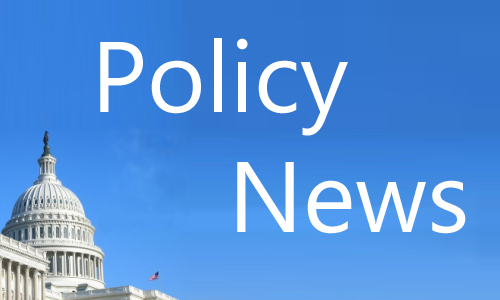ESA Policy News July 1: White House voices concern with Senate CJS funding bill, Supreme Court rebuffs air pollution rule, ESA commends pope for climate emphasis
Here are some highlights from the latest ESA Policy News by Policy Analyst Terence Houston. Read the full Policy News here. 
APPROPRIATIONS: WHITE HOUSE VOICES CONCERN WITH SENATE CJS BILL
On June 24, the White House Office of Management and Budget submitted a letter to the Senate Appropriations Committee expressing concern with the Senate Commerce Justice and Science Appropriations Act of Fiscal Year (FY) 2016. Like official Statements of Administration Policy, the letters outline its position on the bills. Unlike the Statements of Administration Policy, the letters do not specify whether the president would veto the bill.
Areas of concern cited in the letter include significant funding decreases in the FY 2016 budgets for the National Science Foundation (NSF), the National Oceanic and Atmospheric Administration (NOAA) and the National Aeronautics and Space Administration (NASA) as compared to the president’s FY 2016 budget request. For NSF, the letter notes that the bill “would lead to about 700 fewer research grants, affecting about 9,100 researchers, technicians, and students.”
The disparities in funding levels exist because Congressional Republicans have sought to adhere to sequestration, the automatic across-the-board cuts to all discretionary spending included in the Budget Control Act of 2011 (P.L. 112-25), while the administration has not.
The sequestration cuts can be avoided if Congress passes a deficit reduction measure. Alternatively, Congress would have to pass a new law to nullify the automatic spending cuts, unlikely with the House and Senate under Republican control. The president’s FY 2016 budget would offset sequestration by implementing targeted discretionary spending cuts and revenue increases through tax reform.
Click here to view the White House letter on the Senate FY 2016 CJS bill.
EPA: SUPREME COURT OVERTURNS AIR POLLUTION RULE
On June 29, the US Supreme Court struck down the Obama administration’s Mercury and Air Toxic Standards (MATS) rule for coal-fired power plants. In a 5-4 decision, the Court ruled that the US Environmental Protection Agency (EPA) should have considered compliance costs before deciding to move forward with the air pollution rule.
The Supreme Court ruling effectively reverses the ruling of the United States Court of Appeals for the District of Columbia Circuit, which concluded the EPA rule was within its powers under the Clean Air Act. The DC Circuit Court must now decide whether to instruct EPA to carry out additional analyses or strike down the rule altogether.
Writing for the majority, Justice Antonin Scalia stated “EPA must consider cost — including cost of compliance — before deciding whether regulation is appropriate and necessary. It will be up to the Agency to decide (as always, within the limits of reasonable interpretation) how to account for cost.”
EPA expressed disappointment in the ruling, but noted its MATS rule was issued in 2012 and since that time, most plants are now approaching compliance. An analysis from SNL Financial last month found that only 22 power plants, representing less than one percent of US power capacity were in noncompliance with the rule.
STEM: RESEARCH COMMUNITY, INDUSTRY CALL ON CONGRESS TO PRIORITIZE INNOVATION
On June 23, ESA joined 250 industry, science, and higher education organizations in signing a “Call to Action” urging Congress to enact policies to end sequestration cuts to discretionary spending that hinder research at federal science agencies and make investments that help ensure the United States remains a leader in scientific discovery and innovation.
“As the most dynamic and prosperous nation in the world, the United States has long benefited from policies and investments that have promoted innovation and in turn driven productivity and economic growth, bolstered American trade, ensured our health and national security, and safeguarded the American dream,” the call notes. “Our leadership is now at risk because of years of under-prioritizing federal scientific research investments and policies that promote innovation.”
Click here to view the full letter.
CLIMATE CHANGE: ESA COMMENDS POPE FOR INCLUDING ENVIRONMENT IN ENCYCLICAL
Ecological Society of America (ESA) President-elect Monica Turner, President David Inouye, and Immediate Past-president Jill Baron commend Pope Francis for his encyclical on the environment.
“The Ecological Society of America commends Pope Francis for his insightful encyclical on the environment,” reads the statement. “Addressed to everyone on this planet, the letter issued on 18 June 2015 is an eloquent plea for responsible Earth stewardship. The pope is clearly informed by the science underpinning today’s environmental challenges. The encyclical deals directly with climate change, its potential effects on humanity and disproportionate consequences for the poor, and the need for intergenerational equity.”
A papal encyclical is one of the highest forms of official papal teaching that influences Catholics worldwide. The global popularity and moral clout of Pope Francis with non-Catholics and Catholics alike has the potential to influence climate change policy.
Click here to read the full ESA statement. Click here to read the pope’s encyclical.